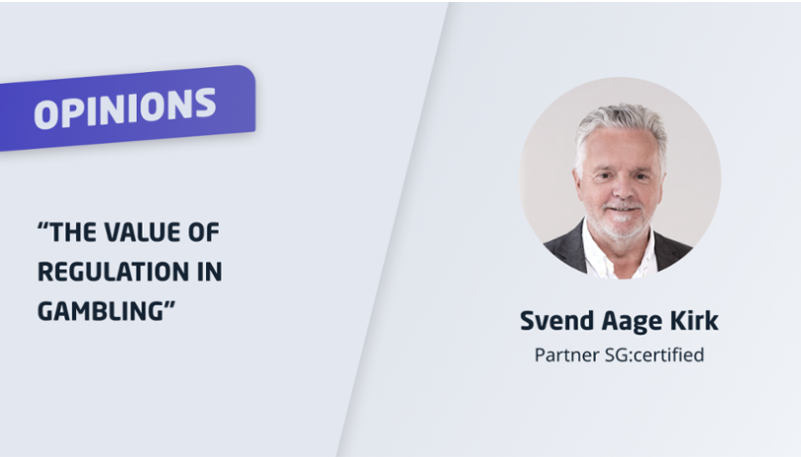Who are the affected others?

Who are the affected others?
Who are the affected others?
Affected others is the term researchers use to refer to the family, friends, and colleagues of disordered gamblers that deal with consequences of their behaviour. They often endure similar detrimental effects as the gamblers themselves (Dowling et al., 2014; Orford, 1994), including conditions such as depression (Bergh Kulhorn, 1994; Lesieur, 1998), physical health complications (Lorenz Yaffee, 1988; Svensson et al., 2013; Wenzel et al., 2008), and financial hardships (Hodgins et al., 2007; Petry Weiss, 2009; Kalischuk et al., 2006; Lesieur, 1998). This group is also prone to homelessness (Johnstone Regan, 2020), instances of family violence (Suomi et al., 2013), and is three times more likely to attempt suicide compared to the general population (Gaudia, 1987; Lorenz Yaffee, 1988). The number of individuals affected by one disordered gambler can vary, ranging from 5 to 17 according to different studies (Hodgins et al., 2007; Kalischuk et al., 2006; Lesieur, 1998).
According to a report from the Productivity Commission in Australia, the range of affected individuals can be between 5 and 10, a statistic also cited in another research (2007; Leung et al., 2010). Research in Scandinavia suggests that the percentage of affected others in the population ranges from two to 19% (Rockloff et al., 2019; Salonen et al., 2016; Salonen et al., 2014; Shiue, 2015; Svensson et al., 2013; Wenzel et al., 2008). Discrepancies in estimated prevalence can be attributed to various factors, including the biased self-presentation of the disordered gambler, where they aim to portray themselves in a favourable light (1985), and a positive memory bias, leading them to recall more positive events than negative ones (Walker et al., 2003). Furthermore, the diversity in terminologies used, such as 'concerned significant other' emphasizing close family members, and 'affected other' considering a broader spectrum, contributes to the variations in reported numbers (Goodwin et al., 2017).
Effects of disordered gambling on others
A recent study conducted by Deakin University in 2021 has contributed significantly to our current comprehension and the trajectory of contemporary research in understanding the effects of gambling-related harm on those impacted. The UK Gambling Commission's (UKGC) report underscores a broad spectrum of consequences experienced by the close associates of individuals with gambling disorders, including emotional turmoil, depression, tendencies towards self-harm, physical health complications, addictive tendencies, and feelings of social detachment. Notably, even the romantic partners of those with gambling disorders often admit to lacking a comprehensive understanding of the gravity of the issue. Research investigating the correlation in negative effects within couples commonly indicates that partners perceive the fallout from gambling as more severe than the gamblers themselves. Dishonesty, deception, and a breakdown of trust are common signs of attempts to conceal an underlying problem. The adverse impacts are not limited to partners alone. Adult children, for instance, frequently express distancing themselves from a parent or assuming a caregiving role in coping with the issue. Similarly, parents of individuals with gambling disorders frequently report enduring both physical and emotional strain, a reduced sense of joy in life, feelings of culpability, and concerns regarding the well-being of their grandchildren.
After the disordered gambler reveals their gambling issues, those affected may assume various roles to minimize the resulting harm (Kalischuk, 2010), effectively shouldering half of the gambling-related burden, including financial strains (Li et al., 2017). This redistribution of harm becomes particularly challenging for the affected individual if they were previously unaware of the warning signs (Bond et al., 2016), potentially leading to significant financial and emotional devastation (McComb et al., 2009). Subsequent to the disclosure, the gambling-related damage may intensify, especially if the gambler or the affected party opts to keep the issue concealed, hindering the affected individual from seeking necessary assistance and guidance (Valentine & Hughes, 2017). The role of the affected individual is pivotal for the problem gambler, and an unsettling cycle can ensue if the affected individual experiences mental health complications, prompting the problem gambler to revert to gambling due to the fear of losing support (Boyd & Bolen, 1970).
Moreover, the recovery journey of a problem gambler significantly affects the affected individual, who often assumes the role of offering informal assistance and overseeing the rehabilitation process (Hodgins el Guebaly, 2000; Patford, 2007). Despite this admirable dedication, affected individuals typically still require external support, especially considering instances where the support providers may disregard the affected individual's experiences (2009). When problem gamblers perceive a lack of support from their affected counterparts, the likelihood of them remaining in treatment decreases (Bertrand et al., 2008). Tensions between problem gamblers and affected individuals can even contribute to the gambler's relapse (Poirier Arbour et al., 2014). Although the affected individuals are in need of seeking assistance, many report refraining from accessing formal support, resorting instead to emergency aid such as food assistance to alleviate the crises impacting their families (Landon et al., 2018). Despite not receiving support themselves, the affected individuals often find themselves offering support not only to the problem gambler but also to other affected individuals, including the children (2009).
Assessment lacking; more research needed
While our collective knowledge on the subject is increasing, some gaps remain. There is a need, as the study highlighted, for a standardized measuring system to reliably track the prevalence of affected others across multiple data points over a long period of time.
Or, as the researchers themselves put it:
“The infancy of this field, coupled with the relatively limited success of the available interventions, suggests that an examination of the much larger intervention literature for affected others across the addictions may be helpful to advance intervention development for others affected by gambling harms.”
According to Deakin University, 22 different “instruments” have been developed or recommended for the assessment of affected others. And broadly speaking, these instruments are not rigorously tested or validated.
Community Reinforcement and Family Training (CRAFT), for example, appears to be one good starting point. CRAFT treatment focuses on improving individual function and the quality of relationships, as well as training in communication, stress reduction, and life skills designed to encourage gambling reduction and help-seeking. While these tactics do offer some useful strategies, they lack specific details on how to initiate the conversation, how to select an approach, and how to implement it over the longer term. More work is needed to refine this approach and others like it.
The overall goal is summarized well by the Commission: “Better data, better research and better evidence will lead to better gambling regulation and better outcomes for consumers who gamble, their communities and the gambling sector itself.”
Dr Maris Catania
Category
Other Blogs

October 27, 2023
AML from A to C. Assessment to Compliance.

October 12, 2023
EveryMatrix Case Study

August 30, 2023
The value of regulation in gambling

August 22, 2023
Chumash Casino Resort - Case Study

May 30, 2025
G4 Partners with SGcertified to Strengthen Auditing Services in Responsible Gambling

May 16, 2025
Nueva reglamentación publicitaria en España

January 20, 2025
The Importance of Accreditation with Lottopar

January 16, 2025
Insights on Anti-Money Laundering (AML) and the Didier Reynders case


